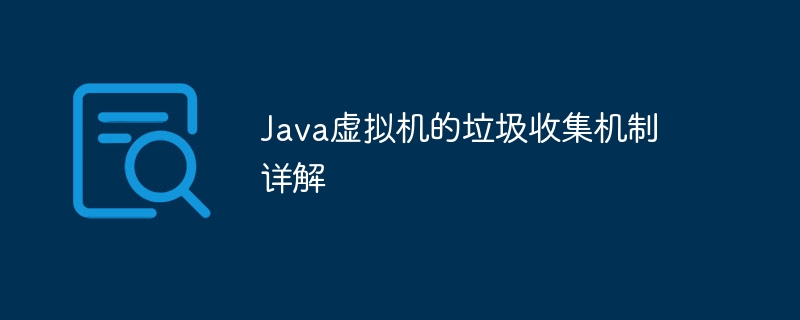
The garbage collection mechanism of the Java Virtual Machine (JVM) is responsible for automatically recycling objects that are no longer used and releasing memory. Garbage collection algorithms include mark-sweep, reference counting, and generational collection. The garbage collection process consists of marking, cleaning, and (optional) grooming phases. By reducing object creation, using weak references, and adjusting JVM memory parameters, you can optimize garbage collection performance to improve memory management and stability of your Java applications.

Detailed explanation of the garbage collection mechanism of Java virtual machine
Introduction
Java Virtual Machine (JVM )'s garbage collection (GC) mechanism is a key function of the JVM to manage memory. It is responsible for automatically recycling objects that are no longer used by the application, thereby releasing memory for use by new objects.
Garbage Collection Algorithm
The JVM uses a variety of garbage collection algorithms, each with its own pros and cons:
Garbage collection process
The garbage collection process usually consists of the following steps:
Practical case
To demonstrate garbage collection, we use a Java program to create an object and set it to null so that it is no longer referenced:
public class GCExample { public static void main(String[] args) { // 创建一个对象 Object object = new Object(); // 将对象设置为 null,使其不再被引用 object = null; // System.gc() 方法尝试触发垃圾收集 System.gc(); } }
When running this program, if the JVM detects that theobjectobject is no longer referenced, it will be marked as garbage and recycled by the garbage collector.
Optimize garbage collection performance
The following measures can be taken to optimize garbage collection performance:
By understanding the garbage collection mechanism of the Java virtual machine, you can better manage the memory usage of your Java applications, thereby improving performance and stability.
The above is the detailed content of Detailed explanation of the garbage collection mechanism of Java virtual machine. For more information, please follow other related articles on the PHP Chinese website!




